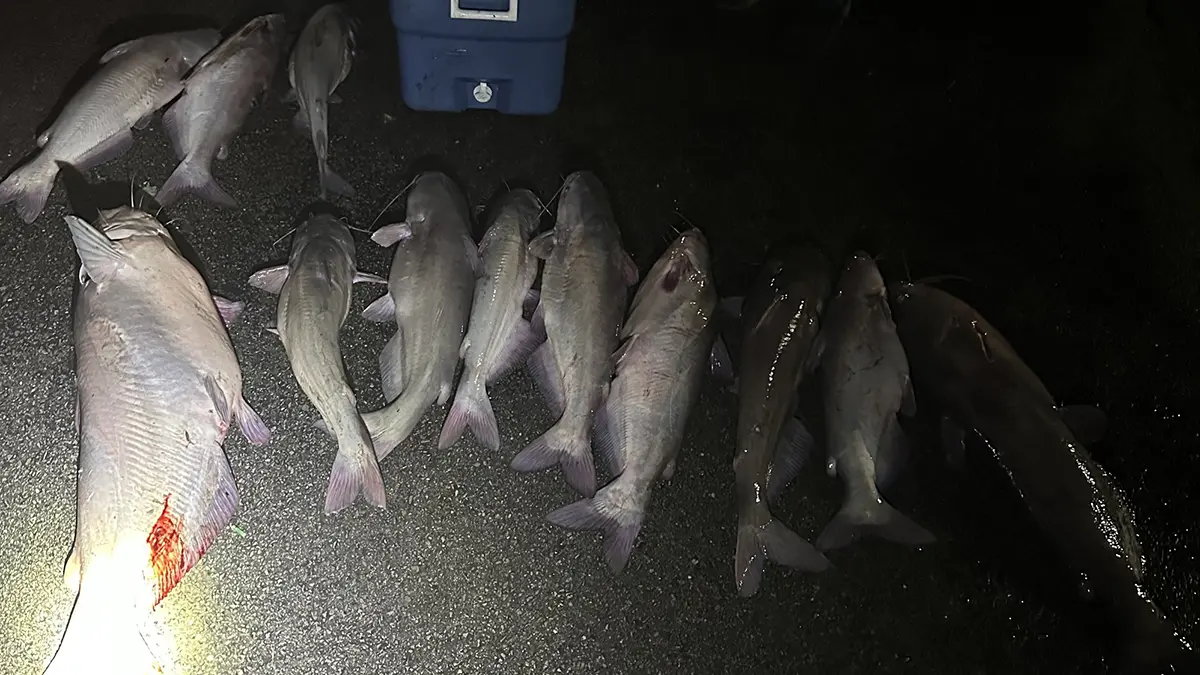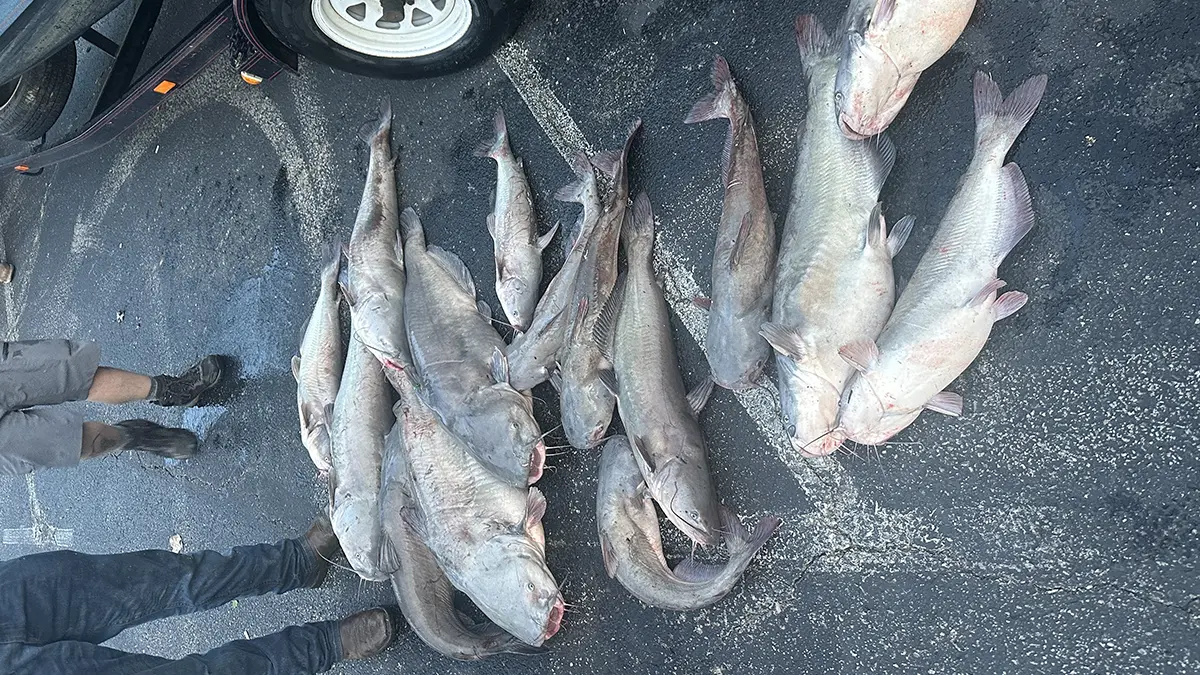An extensive investigation conducted in the first half of 2024 by wildlife law enforcement officers spanning three states has resulted in a series of arrests stemming from illegal catfishing activity at a pay lake in Kentucky.
Commercial and recreational anglers are accused of catching fish in Alabama and Kentucky and selling those fish to “pay lakes” in Kentucky and Tennessee, breaking numerous laws in the process, according to Kentucky’s Fish and Wildlife Law Enforcement Division’s Special Investigations Unit (SIU).
All told, nine individuals were charged with 180 fish and wildlife related violations in Kentucky, with charges pending in numerous other states. Kentucky Fish and Wildlife officials haven’t released the identities of the suspects at the time of this post.
“It started as a local case,” Kentucky Game Warden Cody Fox told Wired2fish. Fox said anglers often make comments on the Kentucky Fish and Wildlife Facebook page asking the agency to investigate incidents of poaching involving catfish and the catfish trade.
The Department takes these claims seriously, and started probing into some catfish pay lakes. “But once we started investigating, it grew bigger quickly.”
If you’re not familiar, a “pay lake” is a commercial operation in which anglers pay a fee to fish. They are typically stocked at a much higher rate than water bodies that rely on natural reproduction, resulting in a high degree of success. Anglers can pay by fishing session, by the poundage of fish caught, or both.
Such lakes are usually stocked with fish from hatcheries or farms, but sometimes the owners of the lake will pay anglers for fish caught in other waterways. This isn’t an issue if the fish are caught in accordance within the boundaries of the local wildlife laws, but sometimes Fox says the operators of the pay lakes will operate outside the bounds of the law in an effort to turn higher profits.
“There are very few licensed commercial fishermen [in the state] that can legally sell big catfish to pay lake operations. So they can charge $4, $5, $6 a pound for trophy cats,” Game Warden Fox said.
Each commercial fisherman has a limit on how many fish they can catch and sell each year, with additional limits placed on the number of trophy cats — those weighing over 15 pounds — they can take. This creates a seller’s market for the legally-obtained trophy catfish, and drives prices up. Recreational anglers are not permitted to sell fish to pay lakes at all.
“So it’s just cheaper to buy them illegitimately,” Fox added.

ALLEGATIONS AGAINST KENTUCKY PAY LAKE
The violations alleged by the Kentucky Fish & Wildlife agency are numerous and varied, targeting the owner of a pay lake in Glasgow, Kentucky as well as several commercial and recreational fishermen.
The operator of the pay lake allegedly knowingly purchased catfish from a restricted waterway, from individuals who were not licensed commercial fishermen. Additionally, they failed to document any of the transactions as required by Kentucky law.
Two commercial fishermen harvested approximately 6,400 pounds of live catfish from waters in Alabama. The bulk of these fish were trophy-sized, with some weighing in excess of 60 pounds. Alabama law prohibits the transport of live trophy-sized catfish outside state lines, but they were transported and sold to the pay lake operator in Glasgow, Kentucky, the agency says.
There were also thousands of pounds of live catfish that were harvested on 71 occasions from Barren River Lake in Kentucky, which is closed to commercial fishing.
The investigation conducted by Game Warden Fox and the Kentucky Fish and Wildlife Law Enforcement Division’s Special Investigations Unit ended with nine individuals being charged with a total of 180 fish and wildlife related charges in Kentucky, and more in other states.
“It would have been a Lacey Act violation, but we worked with other states to get it prosecuted,” Game Warden Fox explains.
The Lacey Act, implemented in 1900 and amended in 1981 and 2008, places limits on what types of wildlife can be imported or transported across state lines.
The investigation involved the KDFWR Game Wardens, U.S. Fish & Wildlife Service, Tennessee Wildlife Resources Agency, Alabama Game and Fish Division, and the Barren County Attorney’s Office.
While the individuals who allegedly moved the fish across state lines could have been charged under the Lacey Act, the other states involved will handle their prosecution respectively.
“After consultation with U.S. Fish & Wildlife Service officials, it was determined that the level of cooperation between all the state agencies allowed each of the individuals to be charged properly by the states, so it was not escalated to the federal level,” said Fox.
But Game Warden Fox still encourages anglers to visit pay lakes if they wish to do so. “No one has an issue with pay lakes. It’s just that the black market can be a problem.”












